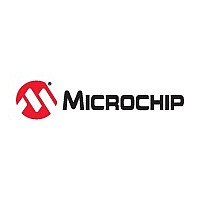PIC16F716-I/P Microchip Technology Inc., PIC16F716-I/P Datasheet - Page 19

PIC16F716-I/P
Manufacturer Part Number
PIC16F716-I/P
Description
18 PIN, 3.5 KB FLASH, 128 RAM, 13 I/O
Manufacturer
Microchip Technology Inc.
Datasheet
1.PIC16F716-IP.pdf
(126 pages)
Specifications of PIC16F716-I/P
A/d Inputs
4-Channel, 8-Bit
Cpu Speed
5 MIPS
Eeprom Memory
0 Bytes
Input Output
13
Memory Type
Flash
Number Of Bits
8
Package Type
18-pin PDIP
Programmable Memory
3.5K Bytes
Ram Size
128 Bytes
Speed
20 MHz
Timers
2-8-bit, 1-16-bit
Voltage, Range
2-5.5 V
Lead Free Status / Rohs Status
RoHS Compliant part
Electrostatic Device
Available stocks
Company
Part Number
Manufacturer
Quantity
Price
Company:
Part Number:
PIC16F716-I/P
Manufacturer:
MICROCHIP
Quantity:
5 373
Part Number:
PIC16F716-I/P
Manufacturer:
MICROCHIP/微芯
Quantity:
20 000
2.3
The Program Counter (PC) specifies the address of the
instruction to fetch for execution. The PC is 13 bits
wide. The low byte is called the PCL register. This
register is readable and writable. The high byte is
called the PCH register. This register contains the
PC<12:8> bits and is not directly readable or writable.
All updates to the PCH register go through the PCLATH
register.
2.3.1
Executing any instruction with the PCL register as the
destination
Counter PC<12:8> bits (PCH) to be replaced by the
contents of PCLATH register. This allows the entire
contents of the program counter to be changed by first
writing the desired upper 5 bits to the PCLATH register.
When the lower 8 bits are then written to the PCL
register, all 13 bits of the program counter will change
to the values contained in the PCLATH register and
those being written to the PCL register.
Care should be exercised when modifying the PCL
register to jump into a look-up table or program branch
table (computed GOTO). With PCLATH set to the table
start address, if the table is greater than 255
instructions or if the lower 8 bits of the memory address
rolls over from 0xFF to 0x00 in the middle of the table,
then PCLATH must be incremented for each address
rollover that occurs between the table beginning and
the target address.
2.3.2
The CALL and GOTO instructions provide 11 bits of
address to allow branching within any 2K program
memory page. When doing a CALL or GOTO instruction,
the upper bit of the address is provided by
PCLATH<3>. When doing a CALL or GOTO instruction,
the user must ensure that the page select bit is
programmed so that the desired program memory
page is addressed. If a RETURN from a CALL instruction
(or interrupt) is executed, the entire 13-bit PC is pushed
onto the stack. Therefore, manipulation of the
PCLATH<3> bit is not required for the RETURN
instructions (which POPs the address from the stack).
2003 Microchip Technology Inc.
PCL and PCLATH
MODIFYING PCL
PROGRAM MEMORY PAGING
simultaneously causes the
Program
Preliminary
FIGURE 2-3:
2.4
The stack allows a combination of up to 8 program calls
and interrupts to occur. The stack contains the return
address from this branch in program execution.
Mid-range devices have an 8-level deep x 13-bit wide
hardware stack. The stack space is not part of either
program or data space, and the stack pointer is not
readable or writable. The PC is PUSHed onto the stack
when a CALL instruction is executed or an interrupt
causes a branch. The stack is POPed in the event of a
RETURN, RETLW or a RETFIE instruction execution.
PCLATH is not modified when the stack is PUSHed or
POPed.
After the stack has been PUSHed 8 times, the ninth
push overwrites the value that was stored from the first
push. The tenth push overwrites the second push (and
so on).
12
12 1110
PCH
PCH
2
Stack
PCLATH<4:3>
PCLATH<4:0>
5
PCLATH
PCLATH
8 7
8 7
LOADING OF PC IN
DIFFERENT SITUATIONS
PCL
PIC16F716
PCL
11
8
Opcode <10:0>
DS41206A-page 17
ALU
0
0
Instruction with
PCL as
Destination
GOTO, CALL















